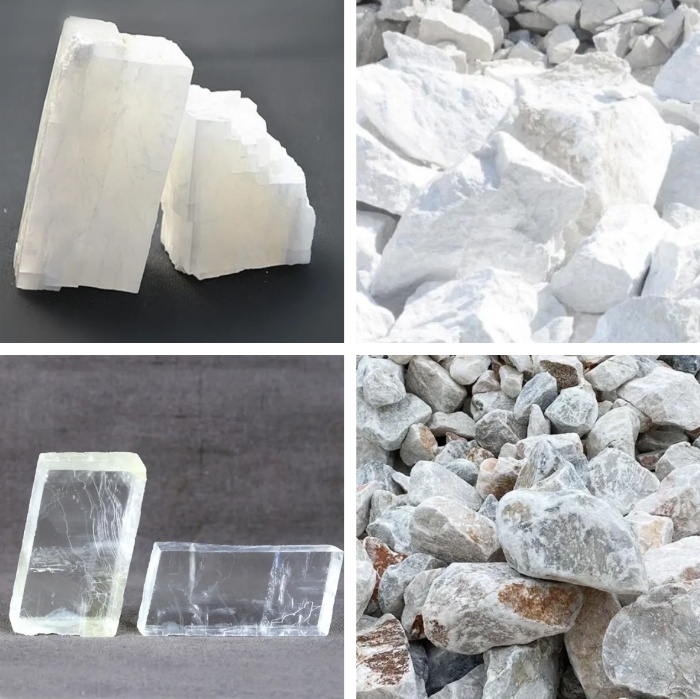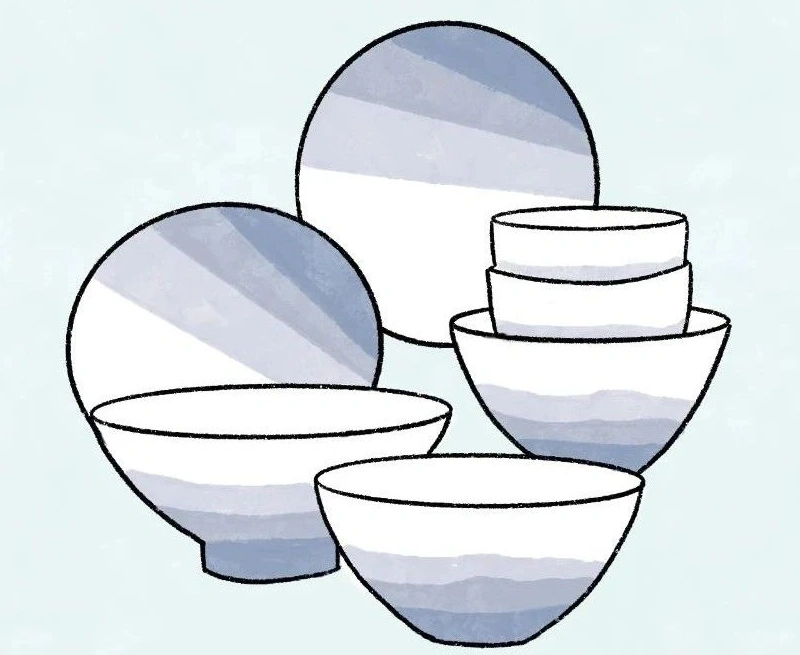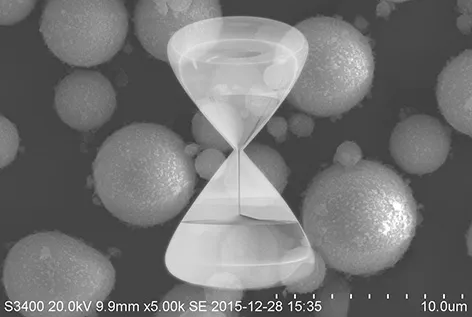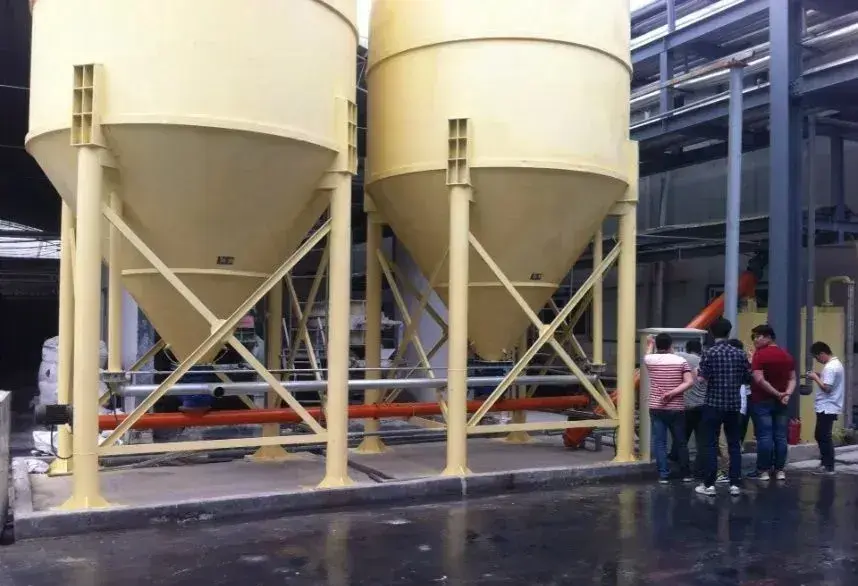Calcium carbonate is an inorganic compound with the chemical formula CaCO₃. It is the main component of limestone, marble, and other rocks. Calcium carbonate is typically a white crystal, odorless, and almost insoluble in water, which reacts with acids to release carbon dioxide. It is one of the most common substances on Earth. It is found in rocks like aragonite, calcite, chalk, limestone, marble, and travertine. Calcium carbonate is also a major component of some animal bones and shells. It is an important building material with wide industrial applications. Calcium carbonate in everyday life can be found in products like toothpaste, dietary supplements, antacids, and even as a food additive for its stabilizing properties.

Mineral Properties
Its crystal structure is orthorhombic. Each calcium carbonate molecule consists of one carbon atom and three oxygen atoms. Each oxygen atom is bonded to a calcium ion. Calcium carbonate is composed of ionic bonds between calcium ions and carbonate ions. The carbonate ion is held together by covalent C-O bonds. The carbonate ion undergoes sp2 hybridization, with the central carbon atom having three orbitals and one p orbital. According to the VSEPR model, it is an AY3 type molecule. Its ideal VSEPR model is a planar triangle, with three C-O bonds in a planar triangle. Additionally, it has a 4-orbital 6-electron p-p large bond. In the crystal, calcium carbonate molecules are arranged in a layered structure parallel to the a and c axes. These layers are connected by co-planar oxygen atoms, forming a three-dimensional network. This structure gives calcium carbonate high stability and hardness.
application
Calcium carbonate in everyday life-plastic

Calcium carbonate is widely used as a filler in resins such as polyvinyl chloride (PVC), polyethylene (PE), polypropylene (PP), and acrylonitrile-butadiene-styrene (ABS) copolymer. Adding calcium carbonate can help improve certain properties of plastic products, expanding their range of applications. In plastic processing, it can reduce resin shrinkage, improve flow behavior, and control viscosity.
Calcium carbonate in everyday life- food

In the food industry, calcium carbonate can be used as an additive. It is used in various feed additives, with a calcium content of over 55.6% and no harmful components. It can serve as a calcium supplement, with an absorption rate of up to 39%, second only to calcium citrate. It is soluble in gastric acid and has become one of the most commonly used and versatile calcium supplements.
Calcium carbonate in everyday life- Chemical Manufacturing

Calcium carbonate with a particle size of 350 to 400 mesh can be used in the manufacturing of ceiling tiles, downpipes, and chemicals, with whiteness above 93. Calcium carbonate with a particle size of 400 to 600 mesh is suitable for toothpaste, soap, with whiteness above 94. Calcium carbonate with a particle size of 800 mesh can be used in rubber, cables, and PVC, with whiteness above 94.
Fine ceramic materials

Calcium carbonate can be used to prepare high-temperature stable, dielectric, low thermal conductivity, microporous, and highly pure ceramic materials. For example, it is widely used in the production of white conductors for spark plugs, as well as in important fine ceramics like semiconductor materials, alumina, and enamel pigments.
Nutritional Supplements

Most calcium tablets on the market primarily contain calcium carbonate. Calcium carbonate should be taken with meals. Due to the presence of carbonate, it releases carbon dioxide in acidic environments. It is not suitable for individuals with poor stomach acid secretion or those using acid suppressants.
Construction Industry
It can be used as a raw material in plastic factories, rubber factories, paint factories, and waterproofing material factories, as well as for interior and exterior wall painting. It features high purity, high whiteness, non-toxicity, odorlessness, low oil absorption, and low hardness. Marble is also an important building material for house construction.
Mineral fillers and abrasives
Industrial-grade calcium carbonate can also be used as a mineral filler and abrasive. In the chemical and building materials industries, calcium carbonate can replace more expensive materials such as white lead ore, talc, and talcum powder. In abrasives, the particle surface of calcium carbonate interacts with the abrasive matrix, enhancing wear resistance and grinding efficiency, improving the performance and durability of abrasives.
epic powder
Epic Powder, 20+ years of work experience in the ultrafine powder industry. Actively promote the future development of ultra-fine powder, focusing on crushing,grinding,classifying and modification process of ultra-fine powder. Contact us for a free consultation and customized solutions! Our expert team is dedicated to providing high-quality products and services to maximize the value of your powder processing. Epic Powder—Your Trusted Powder Processing Expert !

